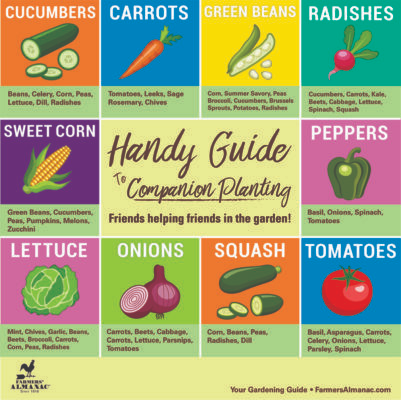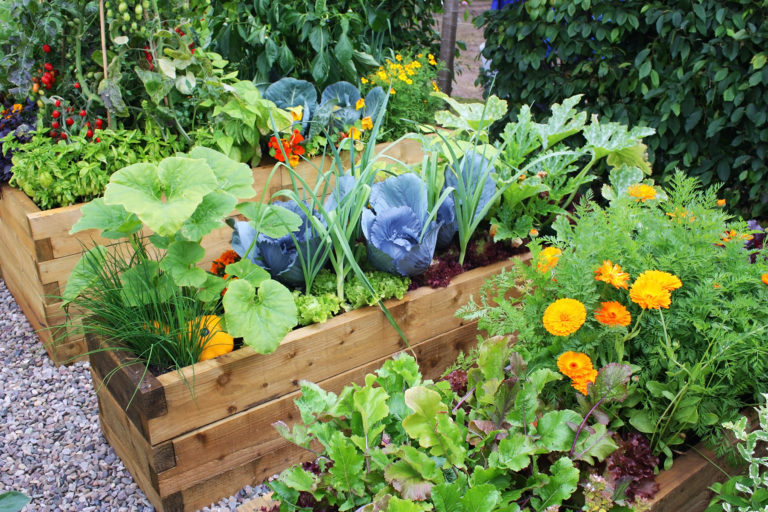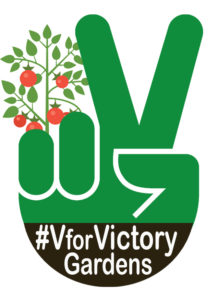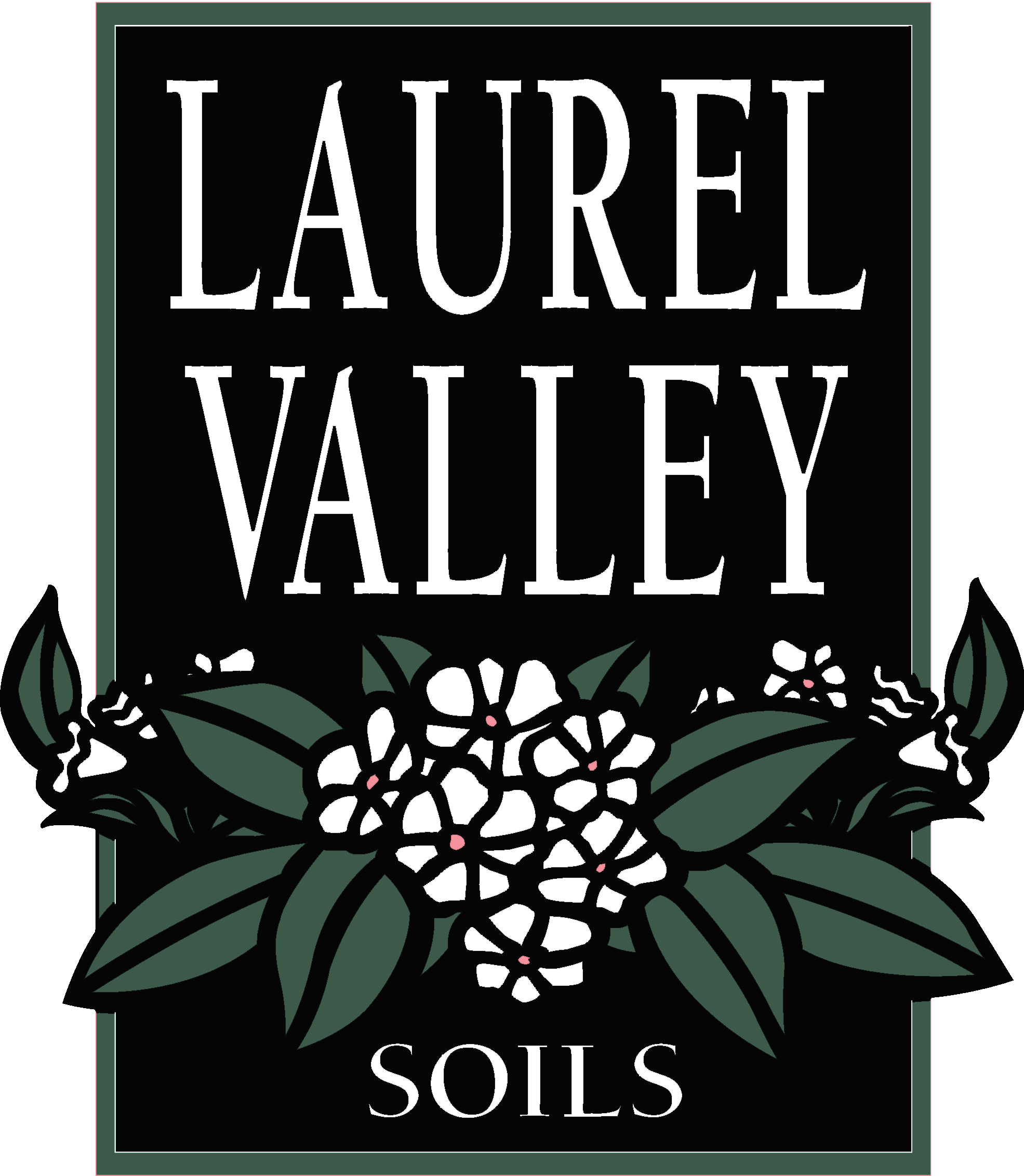Typically, we plan our vegetable gardens around companion planting guides similar to the one below which shows which food crops cohabitate well with each other.
For example, we know that tomatoes don’t play nice with cucumbers, but are bff’s with basil and spinach.

But did you know that tomatoes also love being grown with various flowers, including allium, marigolds, calendula, and nasturtiums?
Let’s take a look at all the ways nasturtiums help vegetables like tomatoes to grow big and healthy.
1. Flowers attract pollinators and beneficial insects which help with vegetable production and controlling pests.
Pollinating insects like butterflies and bees are crucial for vegetable development. With squash, for instance, you can have lush vines and leaves topped off with stellar large flowers, but if those flowers aren’t pollinated, no squash will develop.
According to horticulturist Erica Shaffer, adding flowers and herbs to your garden repels some pests, too. “While I have yet to see a nose on any insect,” Shaffer said, “Mixing flowers and herbs up with vegetables confuses critters. Different smells camouflage each other and fewer pests are drawn to your garden.”

2. Blooming plants are often used as a ground cover or space filler. Nasturtiums are fast growing flowering plants can provide a “carpet” to shade soil and out-compete weeds.
3. Flowers can act as a sacrificial “trap crop” to lure pests and make it easier to remove them. Nasturtiums attract butterflies and moths that attack cabbage family crops, distracting them from your more valuable vegetables.
4. Flowering plants produce chemicals to repel insects from attacking a plant’s leaves, flowers, roots and fruit. Nasturtiums and some varieties of marigolds can be used to fumigate the soil as a natural deterrent to harmful root knot nematodes. Their strongly scented flowers and foliage can also help repel insects above the ground.
5. Soil fertility can be improved by incorporating plants that can fix atmospheric nitrogen. Legume plants such as beans, peas and clover have root nodules that harbor Rhizobium bacteria that help to fix nitrogen through a symbiotic relationship with plants. The symbiont plants will have nitrogen for their own use and for the benefit of the neighboring non nitrogen-fixing plants.
If you have already planted your veggie garden, it’s not too late to add some flowers! And don’t forget to show off your garden and use the #VforVictoryGardens hashtag!


